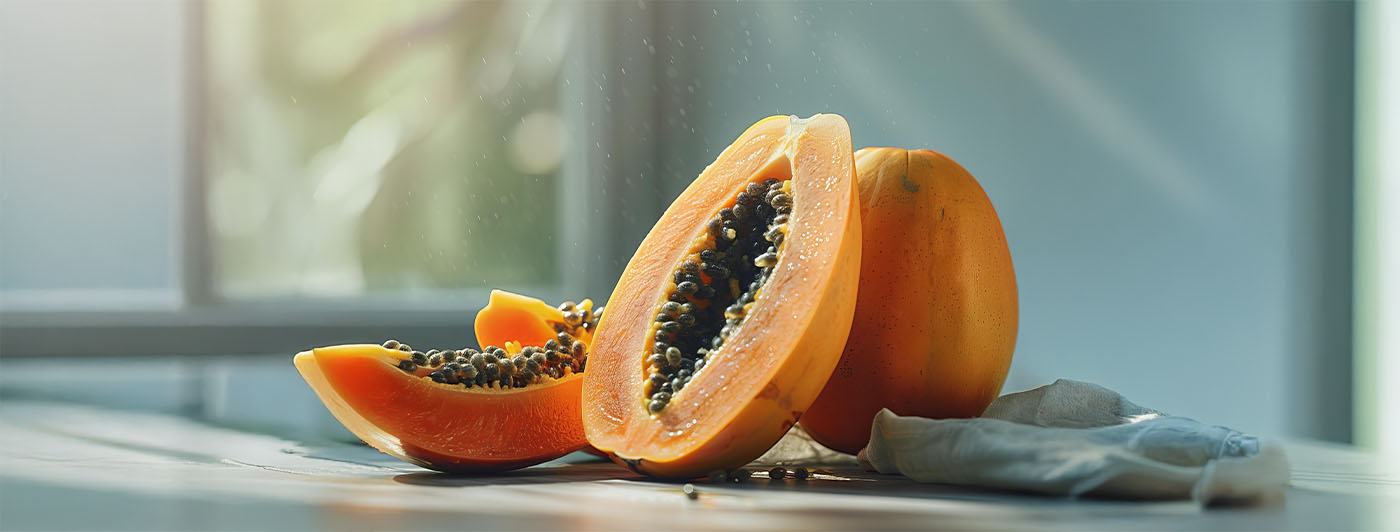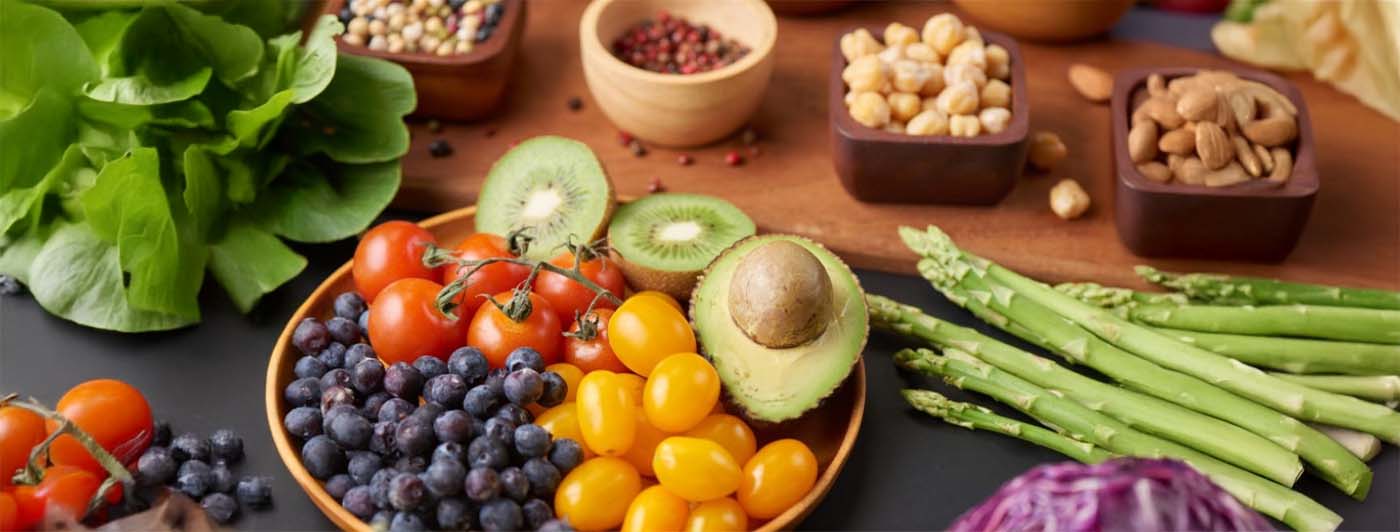Can a sweet fruit really help manage blood sugar? It may seem unlikely, but guava is one of the few fruits that defies expectations. With its low glycemic index, high fiber, and antioxidant content, it could offer surprising benefits for people with diabetes.
Diabetes is a chronic metabolic condition marked by high blood sugar due to poor insulin function. While fruit is often restricted, not all fruits affect blood sugar the same way. So—is guava good for diabetes?
Native to tropical regions like India, guava (Psidium guajava) has shown potential to aid glucose control, especially when paired with healthy fats or plant protein for a balanced, low-GI meal. Below are seven science-backed reasons why it may support better metabolic health.
Is Guava Good for Diabetes? Let’s Examine the Science
To truly understand is guava good for diabetes, we need to look beyond its taste and sugar content. Guava is considered a functional food, rich in compounds that actively support metabolic health.
Research shows that guava extract significantly reduces post-meal blood sugar levels in human subjects, suggesting it can help manage glycemic spikes. Its high concentration of polyphenols, flavonoids, carotenoids, and vitamin C offers antioxidant and anti-inflammatory effects—both of which are vital in reducing insulin resistance and preventing diabetes-related complications.
Animal studies also show guava may improve insulin sensitivity by activating key pathways involved in glucose uptake. These effects, combined with its low glycemic index and high fiber, make guava a smart addition to diabetic diets.

1. Low Glycemic Index
The glycemic index (GI) of a food reflects how quickly it raises blood sugar levels. Guava has a GI between 12 and 24, which is considered very low. This is attributed to its high fiber content and complex carbohydrate profile.
More importantly, its glycemic load (GL)—a measure that considers the quantity of carbs in a typical serving—is also minimal, making it a safe fruit for those tracking postprandial glucose spikes. This answers the central question: is guava good for diabetes? Yes—its glycemic impact is low and gradual, promoting stable blood sugar levels.
2. High Fiber Content
Guava contains approximately 5g of dietary fiber per 100g, including both soluble and insoluble fiber. Soluble fiber forms a gel-like matrix in the gut that slows down glucose absorption, delaying gastric emptying and promoting satiety.
This mechanism is beneficial for people who:
-
Struggle with blood sugar fluctuations
-
Experience bloating from protein powder and need natural digestive support
-
Want to reduce caloric intake through higher satiety levels
By slowing carbohydrate digestion and reducing post-meal blood sugar spikes, guava becomes a valuable addition to a diabetic meal plan.
3. Supports Insulin Sensitivity
A number of preclinical and small-scale clinical studies suggest guava leaf extract may enhance insulin sensitivity and reduce fasting blood sugar levels. The active compounds—particularly flavonoids like quercetin—modulate glucose metabolism pathways, including GLUT4 translocation and AMPK activation.
While these benefits are more pronounced in leaf extract form, the fruit retains many of the same phytochemicals, albeit in smaller concentrations. Regular consumption of guava has shown potential to improve insulin efficiency—thus reinforcing the answer to is guava good for diabetes with another "yes."
4. Packed with Essential Nutrients
Guava is a nutritional powerhouse. One guava provides:
-
Over 200% of the RDA of vitamin C
-
Decent levels of potassium, magnesium, and vitamin A
-
Natural antioxidants such as lycopene, beta-carotene, and quercetin
While not a direct source of vitamin B12, guava complements vitamin B12 fruits and vegetables by improving nutrient absorption and supporting cellular metabolism—important for nerve health, which is often compromised in long-term diabetes (diabetic neuropathy).
Its potassium content (more than bananas, gram-for-gram) supports heart health and blood pressure regulation—two major concerns in diabetic patients.
5. Aids in Weight Management
Excess adiposity—especially visceral fat—is closely linked with insulin resistance. Guava, being low in calories (~68 kcal/100g), high in fiber, and rich in water content, is a scientifically sound snack for weight control.
It reduces hunger cravings, stabilizes energy levels, and can be a great addition to drinks to reduce belly fat or mid-meal snacks for glycemic balance.
Notably, weight reduction of even 5-10% in overweight diabetics significantly improves glucose tolerance and HbA1c levels.
6. Rich in Antioxidants
Diabetes accelerates the formation of advanced glycation end-products (AGEs) and reactive oxygen species (ROS), leading to cellular and vascular damage. Guava counters this oxidative stress due to its high content of:
-
Ascorbic acid (vitamin C)
-
Lycopene
-
Quercetin
-
Polyphenolic compounds
These bioactives help reduce systemic inflammation and delay diabetes-related complications.
Among antioxidant rich foods in India, guava ranks high in terms of both bioavailability and affordability, making it an accessible option for daily intake.
7. Excellent Snacking Option
When looking for suitable zero calorie snacks or low-glycemic snacking options, diabetics often struggle with taste, convenience, and safety. Guava checks all the boxes—it is:
-
Naturally sweet, reducing cravings for refined sugar
-
Easy to carry and consume without refrigeration
-
Fiber-rich, improving gut health and lowering hunger
This makes guava an excellent replacement for calorie-dense or processed snacks. Though not truly “zero-calorie,” its net caloric contribution is modest and highly beneficial.
Pair with Protein for Better Blood Sugar Control
Combining low-GI carbohydrates with protein or healthy fats is a foundational nutrition strategy for diabetics. Guava can be paired with nuts, Greek yogurt, or plant based protein powder to further stabilize glucose response.
This combination not only moderates glycemic impact but also enhances muscle protein synthesis and metabolic efficiency. It’s also useful for individuals tracking their macros via tools like a protein intake calculator.
If you're transitioning to plant-based eating, the synergy of guava with plant protein can create a powerful functional snack or meal component.
How to Include Guava in a Diabetic-Friendly Diet
Here are evidence-based recommendations to integrate guava safely:
-
Portion Size: Stick to one medium-sized fruit per serving (approx. 100–120g)
-
Form: Always consume whole fruit—juices remove fiber and concentrate sugars
-
Timing: Best consumed mid-morning or post-lunch to prevent blood sugar dips
-
Pairing: Add nuts, seeds, or a scoop of the best plant based protein for balanced nutrition
-
Avoid consuming guava alongside high-carb meals to maintain glycemic stability.
Final Verdict: Is Guava Good for Diabetes?
With its low glycemic index, high fiber content, antioxidant properties, and metabolic health benefits, guava is not just safe for diabetics—it is highly recommended. To reiterate:
-
It promotes satiety and supports weight loss
-
Enhances insulin sensitivity
-
Reduces oxidative stress
-
Provides essential micronutrients
-
Offers an excellent low-calorie, natural snack option
So, is guava good for diabetes? Absolutely. When eaten in moderation and in the right form, it can be a valuable part of a diabetic-friendly diet, offering both therapeutic and preventive benefits.
For individuals seeking real-food solutions to chronic health conditions, guava is a prime example of how nature provides us with functional nutrition that is both healing and delicious.
Now you know the answer to “is guava good for diabetes?”—yes, and it may be one of the most underrated fruits for managing blood sugar naturally.
Frequently Asked Questions
1. Can diabetics eat guava every day?
Yes, diabetics can safely eat guava daily in moderation. A medium-sized guava (about 100–120 grams) provides fiber and antioxidants that support blood sugar control. One serving per day is generally considered safe and beneficial.
2. Should guava be eaten with or without the peel?
Both options are healthy, but some studies suggest guava without the peel may be more effective in lowering blood sugar and cholesterol. However, the peel adds additional fiber. Choose based on your digestive comfort and overall fiber needs.
3. Is guava leaf tea helpful for people with diabetes?
Yes, guava leaf tea may help reduce post-meal blood sugar spikes. It contains natural compounds that inhibit certain enzymes involved in carbohydrate digestion, making it a useful complementary option alongside a healthy diet.
4. Is guava juice suitable for diabetics?
Guava juice is not recommended for diabetics. Unlike the whole fruit, juice lacks fiber and can lead to rapid increases in blood sugar levels. Whole guava is a better option for blood glucose management.
5. How much guava is safe to eat if you have diabetes?
A good guideline is to consume one medium-sized guava per day. This provides beneficial nutrients without excessive sugar intake. As with all fruits, portion control is important to maintain stable blood sugar levels.












